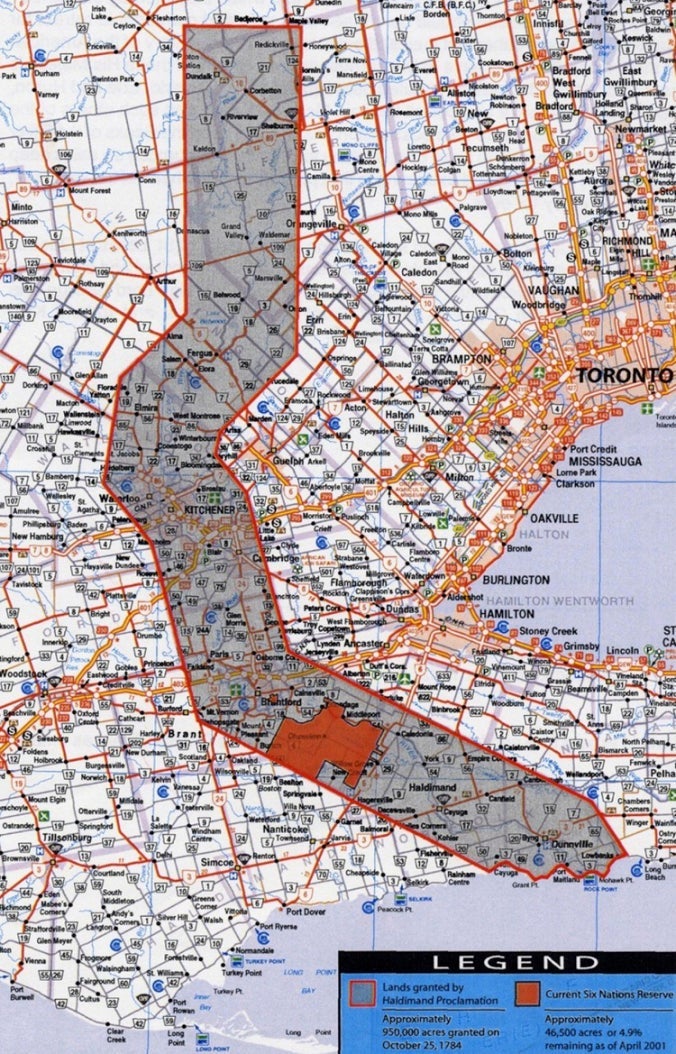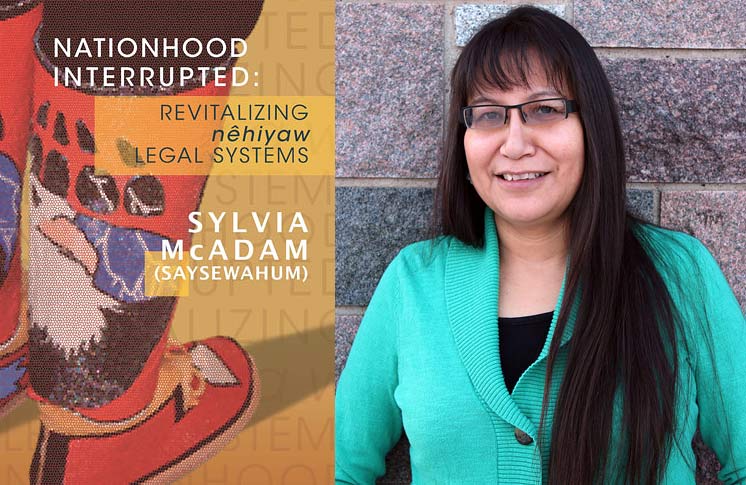The Faculty of Arts and the Waterloo Aboriginal Education Centre (WAEC) are co-sponsoring a new Indigenous Speakers Series highlighting the voices of Indigenous artists, writers, activists, and leaders from across Turtle Island. The series offers UWaterloo students, faculty and staff opportunities to learn from, understand and engage with Indigenous issues.
Along with a number of recent collaborative initiatives between Arts and WAEC, the speaker series represents a growing commitment to Indigenous issues and to the important work that WAEC does on campus and in the community.

Phil Monture of the Six Nations of the Grand River gave the first talk in the series on February 28. He spoke about the history of land alienations from the Haldimand Tract, land promised in 1784 to Six Nations, which includes six miles on each side of the Grand River. He also spoke of the legal efforts that Six Nations has undertaken - through court actions, negotiations, and at the United Nations - to reach a resolution to these dispossessions and to develop better relationships with Canada.
We invited Phil to be our first speaker as he has contributed much to our understanding of this history, and has visited many of my Indigenous history classes over the past few years. This history is of direct relevance to us on campus as the University of Waterloo sits on the traditional territory of the Attawandaron (Neutral), Anishnaabeg, and Haudenosaunee peoples and on Lot 2 of the Haldimand Tract.
On March 29 Sylvia McAdam, co-founder of the Idle No More movement, will give the second talk in the Indigenous Speaker Series entitled Nationhood Interrupted: Revitalizing nêhiyaw Legal Systems. Sylvia will also be at the Waterloo Aboriginal Education Centre for its famous Soup and Bannock lunch on Thursday March 30 providing students an opportunity to meet with her.
The Indigenous Speaker Series is organized by Shawn Johnston (WAEC Events Coordinator), Linda Warley (Professor of English and Assoc. Dean, Graduate Studies), and myself. We welcome suggestions for future speakers - contact me at susan.roy@uwaterloo.ca.
Moving forward together
Since I joined UWaterloo in 2012, there has been an increasing interest in and awareness of Indigenous issues on campus. For example, more events begin with territorial acknowledgement highlighting the Indigenous lands on which UWaterloo is located, and the Truth and Reconciliation Response Projects website launched last summer as a hub for projects and dissemination. In fall 2016, Indigenous activist and academic Cindy Blackstock was the recipient of the honorary Doctor of Laws degree and addressed Arts convocation.

On March 29 Sylvia McAdam was on campus to talk about the revitalization of Indigenous languages and legal traditions.
These initiatives are largely influenced by the Truth and Reconciliation Commission’s (TRC) recent report – and more specifically, the TRC’s Calls to Action directed to post-secondary institutions, which you can read below.
Many of the initiatives are also driven by the vision and leadership provided by WAEC, where students and staff work to raise awareness about Indigenous issues and to broaden and deepen relationships across the campus and in the wider community. Their work pushes all of us at Waterloo toward building a more inclusive and joyous community.
As a space on campus dedicated to Indigenous issues, many look to WAEC for guidance and leadership. The Faculty of Arts and the University have an opportunity to develop a strategic plan in collaboration with WAEC and Indigenous students, leaders, and communities on campus and beyond. As many have pointed out, the plan could, for example, offer a growing range of courses including Indigenous languages courses, support research, support student success, hire Indigenous staff and faculty, develop programs in collaboration with Indigenous leaders and communities, and make our campus reflect the cultural and historical perspectives of Indigenous peoples.
The TRC’s Calls to Action have made it clear that post-secondary institutions have a responsibility to support Indigenous students and communities.
As a university, we have much work ahead to integrate Indigenous issues and worldviews more fully into our institution and to work towards reconciliation, restitution and decolonization. We look forward to continuing this important work together.
The TRC made education a focus by including the following specific calls to action:
- We call upon the federal government to provide adequate funding to end the backlog of First Nations students seeking a post-secondary education (Call to Action 11).
- We call upon the federal, provincial, territorial, and Aboriginal governments to develop culturally appropriate early childhood education programs for Aboriginal families (Call to Action 12).
- We call upon post-secondary institutions to create university and college degree and diploma programs in Aboriginal languages (Call to Action 16).
- We call upon medical and nursing schools in Canada to require all students to take a course dealing with Aboriginal health issues, including the history and legacy of residential schools, the United Nations Declaration on the Rights of Indigenous Peoples, Treaties and Aboriginal rights, and Indigenous teachings and practices. This will require skills-based training in intercultural competency, conflict resolution, human rights, and anti-racism (Call to Action 24).
- We call upon the federal, provincial, and territorial governments, in consultation and collaboration with Survivors, Aboriginal peoples, and educators, to: i. Make age-appropriate curriculum on residential schools, Treaties, and Aboriginal peoples’ historical and contemporary contributions to Canada a mandatory education requirement for Kindergarten to Grade Twelve students. ii. Provide the necessary funding to post-secondary institutions to educate teachers on how to integrate Indigenous knowledge and teaching methods into classrooms (Call to Action 62).
- We call upon the federal government, through the Social Sciences and Humanities Research Council, and in collaboration with Aboriginal peoples, post-secondary institutions and educators, and the National Centre for Truth and Reconciliation and its partner institutions, to establish a national research program with multi-year funding to advance understanding of reconciliation (Call to Action 65).
- We call upon Canadian journalism programs and media schools to require education for all students on the history of Aboriginal peoples, including the history and legacy of residential schools, the United Nations Declaration on the Rights of Indigenous Peoples, Treaties and Aboriginal rights, Indigenous law, and Aboriginal-Crown relations (Call to Action 86).
Article by Professor Susan Roy, originally published in Inside Arts, Winter 2017.